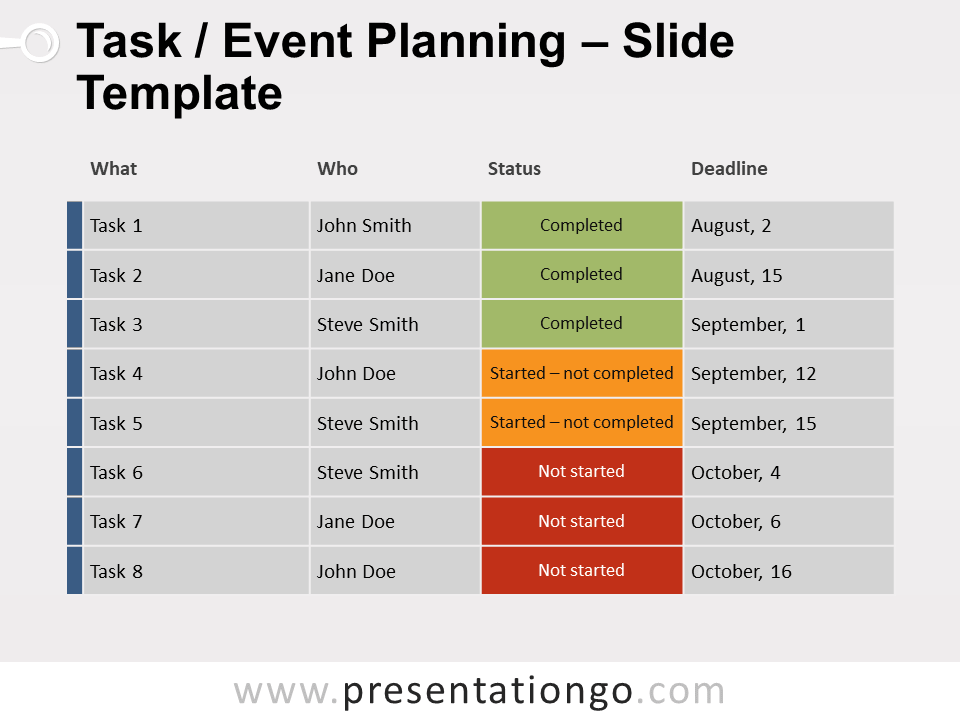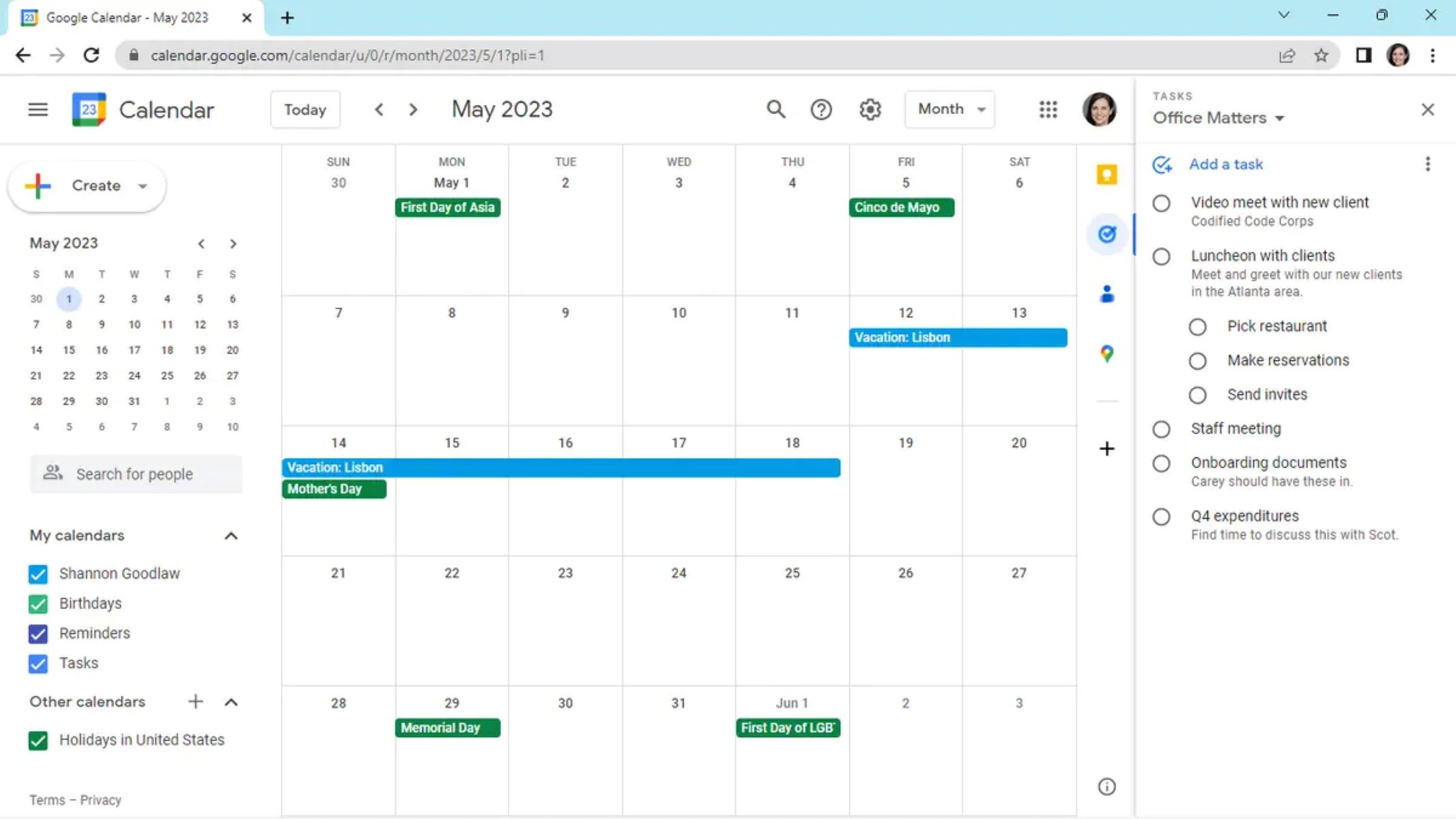distinction between process and occasion in google calendar
Associated Articles: distinction between process and occasion in google calendar
Introduction
On this auspicious event, we’re delighted to delve into the intriguing subject associated to distinction between process and occasion in google calendar. Let’s weave fascinating info and supply contemporary views to the readers.
Desk of Content material
Duties vs. Occasions in Google Calendar: A Deep Dive into Group and Productiveness
:max_bytes(150000):strip_icc()/AddTasktoGoogleCalendar-489bbf8d008e49fda28bfc6f472f60ae.jpg)
Google Calendar is a robust instrument for managing time and commitments, however its effectiveness hinges on understanding the basic variations between its two core options: duties and occasions. Whereas each contribute to total group, they serve distinct functions and are greatest utilized in numerous contexts. Complicated the 2 can result in scheduling inefficiencies and missed deadlines. This text will delve deep into the nuances of duties and occasions in Google Calendar, exploring their functionalities, optimum use circumstances, and the way to leverage them for optimum productiveness.
Understanding Occasions: Scheduling Time-Sure Commitments
Occasions in Google Calendar are primarily designed for scheduling time-bound commitments. These are actions with an outlined begin and finish time, usually involving a selected location or contributors. Consider appointments with medical doctors, conferences with colleagues, deadlines for initiatives, and even scheduled exercise classes. The core attribute of an occasion is its temporal constraint – it occupies a selected slot in your calendar.
Key Options of Occasions:
- Particular Time Body: Occasions at all times have a clearly outlined begin and finish time. This permits for simple visualization of your schedule and prevents scheduling conflicts.
- Reminders: Google Calendar permits you to set reminders for occasions, guaranteeing you do not miss necessary appointments or deadlines. These reminders may be personalized to your preferences, starting from e-mail notifications to pop-up alerts.
- Location: You may add a location to an occasion, making it simple to navigate to the appointment utilizing Google Maps integration.
- Friends: Occasions can embody company, permitting for simple scheduling and communication with contributors. You may ship invites, monitor RSVPs, and handle visitor lists straight throughout the calendar.
- Recurring Occasions: Google Calendar helps recurring occasions, making it simple to schedule repetitive appointments resembling weekly conferences or month-to-month check-ins. You may customise the recurrence sample to suit your particular wants.
- Coloration-coding: Assign colours to various kinds of occasions for fast visible identification and prioritization. This permits for a glance-and-grab understanding of your day.
- Integration with different Google providers: Occasions seamlessly combine with different Google providers like Gmail, Meet, and Maps, enhancing their performance and streamlining workflows.
Optimum Use Instances for Occasions:
- Appointments: Physician’s appointments, hair appointments, dental check-ups.
- Conferences: Crew conferences, consumer conferences, venture conferences.
- Deadlines: Venture deadlines, report submissions, essay due dates.
- Journey: Flights, practice journeys, lodge check-ins.
- Social Occasions: Birthday events, dinners, concert events.
- Courses and Workshops: Scheduled studying classes.
- Recurring Duties with a set time: Weekly group conferences, month-to-month efficiency evaluations.
Understanding Duties: Managing To-Do Objects and Tasks
Duties in Google Calendar, usually accessed by means of the "Duties" part (separate from the primary calendar view), are designed for managing to-do objects and initiatives. Not like occasions, duties do not have a selected begin and finish time. They symbolize objects that should be accomplished, no matter when the completion happens. This flexibility makes duties splendid for managing ongoing initiatives, errands, and fewer time-sensitive actions.
Key Options of Duties:
- No Particular Time Body: Duties do not require a selected time allocation. They merely exist as objects in your to-do record.
- Subtasks: Duties may be damaged down into smaller subtasks, permitting for higher venture administration and monitoring of progress.
- Due Dates: You may assign due dates to duties, offering a goal completion date. Nevertheless, that is completely different from a scheduled time slot.
- Notes and Descriptions: Add detailed notes and descriptions to duties for higher context and readability.
- Prioritization: Arrange duties based mostly on precedence ranges, serving to you give attention to crucial objects first.
- Lists and Folders: Arrange duties into lists and folders for higher categorization and administration. This permits for grouping duties by venture, context, or precedence.
- Integration with different Google providers: Duties can combine with different Google providers, permitting for seamless process administration throughout platforms.
Optimum Use Instances for Duties:
- Ongoing Tasks: Duties splendid for managing particular person elements inside bigger initiatives.
- Errands: Grocery procuring, choosing up dry cleansing, paying payments.
- To-do Lists: Normal lists of issues to perform.
- Brainstorming: Itemizing concepts for a venture or presentation.
- Word-taking: Recording fast notes or reminders.
- Studying Lists: Monitoring books or articles to learn.
- Recurring Duties with out a fastened time: Weekly train, each day journaling.
The Synergy Between Occasions and Duties: A Highly effective Mixture
Whereas occasions and duties serve distinct functions, their mixed use can considerably improve productiveness. Think about a state of affairs the place you’ve gotten a venture deadline (an occasion) scheduled for subsequent Friday. You may break down the venture into smaller duties (duties), every with its personal due date. This strategy permits you to handle the general venture timeline whereas additionally monitoring the progress of particular person elements. The occasion supplies the overarching framework, whereas the duties present the granular particulars.
Widespread Errors and How you can Keep away from Them:
- Overusing Occasions for Non-Time-Sure Duties: Scheduling a "Write report" process as an occasion at 2 PM is inefficient. Use a process with a due date as a substitute.
- Ignoring Duties for Time-Delicate Objects: Forgetting so as to add a vital assembly to your calendar as an occasion can result in missed appointments.
- Poor Group: Failing to categorize and prioritize duties can result in overwhelm and missed deadlines.
- Lack of Integration: Not using the combination between duties and occasions limits the synergy and potential effectivity beneficial properties.
Conclusion: Mastering the Artwork of Job and Occasion Administration
Understanding the basic variations between duties and occasions in Google Calendar is essential for efficient time administration and productiveness. Occasions are for time-bound commitments, whereas duties are for managing to-do objects and initiatives. By successfully using each options and leveraging their integration with different Google providers, you possibly can create a sturdy and environment friendly system for managing your time and attaining your targets. Mastering this distinction will remodel your Google Calendar from a easy scheduling instrument into a robust productiveness engine. Keep in mind to repeatedly overview and refine your system to make sure it continues to satisfy your evolving wants. Experiment with completely different organizational methods, leveraging color-coding, labels, and reminders to optimize your workflow. The secret’s to discover a system that works greatest for you and constantly apply it to maximise your productiveness.






Closure
Thus, we hope this text has offered precious insights into distinction between process and occasion in google calendar. We hope you discover this text informative and useful. See you in our subsequent article!